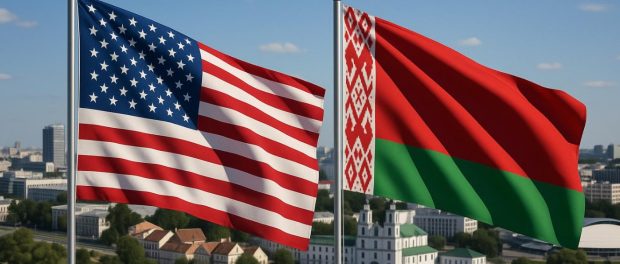A Quiet Thunderclap: Keith Kellogg’s Visit to Belarus and the Shifting Sands of Diplomacy

Such was the case with the recent visit of U.S. Special Presidential Envoy General Keith Kellogg to Belarus—a trip that stirred global headlines, raised eyebrows in diplomatic circles, and may have quietly redrawn the contours of East-West engagement.
Setting the Stage: A Visit Long in the Making
On June 21, 2025, General Keith Kellogg, a senior figure in former President Donald Trump’s foreign policy circle, arrived in Minsk for a high-level meeting with Belarusian President Alexander Lukashenko. The visit marked the highest-ranking U.S. diplomatic presence in Belarus since Secretary of State Mike Pompeo’s 2020 trip and came amid a backdrop of strained U.S.-Belarus relations, ongoing war in Ukraine, and a fractured European security landscape.
Though rumors of the visit had circulated for weeks, its confirmation—and the optics of Kellogg shaking hands with Lukashenko in the gilded halls of the Independence Palace—sent a jolt through international media. Lukashenko himself acknowledged the stir, quipping, “You’ve stirred up quite a lot of noise around the world with your visit”.
The Agenda: Prisoners, Sanctions, and Strategic Signaling
Officially, the meeting’s agenda included a broad range of topics: international security, Belarus-U.S. relations, and the regional implications of the ongoing war in Ukraine. But beneath the diplomatic pleasantries lay a more focused mission—one that would soon bear tangible results.
According to multiple sources, Kellogg’s visit was instrumental in brokering the release of 14 political prisoners from Belarusian jails, including prominent opposition leader Siarhei Tsikhanouski. Tsikhanouski, a former presidential candidate and husband of exiled opposition figure Sviatlana Tsikhanouskaya, had been imprisoned since 2020. His release, alongside others, was hailed as a breakthrough by Western leaders and human rights advocates alike.
Deputy Envoy John Coale, who accompanied Kellogg, credited the success to “strong leadership” from Donald Trump and praised the Lithuanian government for facilitating the prisoners’ safe passage. The emotional moment when the freed detainees were told, “You’re free,” was captured in a video that quickly went viral.
A Calculated Gamble: Why Now?
The timing of Kellogg’s visit was no accident. Analysts point to several converging factors that made this moment ripe for a diplomatic overture.
First, the upcoming Zapad-2025 joint military exercises between Russia and Belarus had raised alarms in NATO capitals. Some feared the drills could serve as cover for hybrid operations or renewed aggression against Ukraine. Kellogg’s presence in Minsk may have been a strategic move to gauge Lukashenko’s intentions and offer a diplomatic off-ramp before tensions escalated further.
Second, the visit coincided with heightened instability in the Middle East, including U.S. strikes on Iranian nuclear facilities. With Washington wary of being drawn into multiple simultaneous crises, stabilizing the Eastern European flank became a priority.
Third, and perhaps most significantly, the visit signaled a potential recalibration of U.S. policy toward Belarus. While the Biden administration had largely maintained a posture of isolation following the 2020 Belarusian elections and subsequent crackdown on dissent, Kellogg’s trip suggested a willingness—at least from Trump-aligned figures—to explore alternative channels of engagement.
Lukashenko’s Calculus: Seeking Legitimacy
For Lukashenko, the visit was a diplomatic coup. Isolated by Western sanctions and increasingly dependent on Moscow, the Belarusian leader has long sought to portray himself as a sovereign actor capable of balancing East and West. Hosting a senior U.S. envoy offered a rare opportunity to burnish that image.
During the meeting, Lukashenko struck a conciliatory tone, expressing hope for “a normal dialogue” and even joking that the palace’s opulence reminded Kellogg of Mar-a-Lago. But behind the charm offensive was a clear strategic aim: to extract concessions—such as sanctions relief or diplomatic recognition—without making irreversible commitments.
Indeed, discussions reportedly touched on the easing of sanctions on Belarusian potash exports, the restoration of diplomatic ties, and even the possibility of Belarus playing a mediating role in future Ukraine-Russia peace talks.
The Critics: Risks and Repercussions
Not everyone welcomed the visit. Critics warned that engaging with Lukashenko risked legitimizing a regime accused of widespread human rights abuses and electoral fraud. As of June 2025, nearly 1,200 political prisoners remained in Belarusian custody, according to the human rights group Viasna.
Some Western diplomats expressed skepticism about the long-term value of the engagement, noting that previous attempts to court Minsk had yielded limited results. Others feared that the visit could undermine the position of Belarusian democratic forces in exile, who have long advocated for a hardline stance against the regime.
Yet even among skeptics, there was acknowledgment that the release of prisoners represented a tangible humanitarian gain—and a potential opening for further dialogue.
A New Chapter or a One-Off?
Whether Kellogg’s visit marks the beginning of a broader thaw or remains a diplomatic anomaly is still unclear. The White House has not officially commented on the trip, and it remains to be seen whether other Western nations will follow suit.
What is certain, however, is that the visit has reinserted Belarus into the geopolitical conversation. For years, the country had been viewed primarily through the lens of its relationship with Russia. Kellogg’s trip suggested a more nuanced approach—one that recognizes Belarus as a distinct actor with its own strategic calculus.
Conclusion: Diplomacy in the Gray Zone
In an era where diplomacy often unfolds in the shadows, Keith Kellogg’s visit to Belarus was a rare moment of visible engagement. It was a gamble—one that could either pave the way for incremental progress or be remembered as a fleeting detour.
For now, the release of political prisoners offers a glimmer of hope. But the road ahead remains uncertain, strewn with geopolitical landmines and moral quandaries. As the world watches Minsk, one thing is clear: the quiet thunderclap of Kellogg’s visit will echo far beyond the gilded halls of the Independence Palace.

Leave a comment